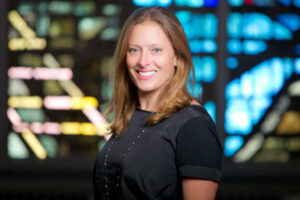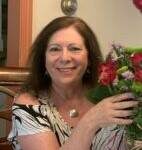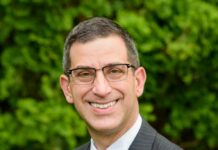
Rabbi Geri Newburge
Parshat Bo
Early in Parshat Bo, Moses and Pharaoh negotiate a departure for the Israelites to go worship the Eternal. Pharaoh accuses Moses of malicious intent, proclaiming, “See here, your evil intent is staring you in the face (Exodus 10:10),” meaning Moses is not being an honest broker about taking the people to worship the Holy One.
Our sages offer several interpretations as to what Pharaoh was ultimately saying, but they are all variations on Pharaoh’s perception that the Israelites would go worship the Eternal, and never return.
Pharaoh isn’t wrong in his understanding. It is clear to him this is the case when Moses asks to take everyone, even the small children, on the trek. Another possible explanation the rabbis offer could mean “the evil which you intend to do will boomerang and hit you in your faces,” meaning Pharaoh will forbid the Israelites to leave altogether, and he will take vengeance on them.
Of course, we know Pharaoh decides not to let Moses and the Israelites depart Egypt, and the eighth plague, locusts, is unleashed upon the land (the first seven plagues occurred in the previous Torah portion).
How can a people be punished for trying to make a better life?
For me, this verse encapsulates the idea that Pharaoh represents oppression, enslavement and the deprivation of Jewish life and practice. Pharaoh is the one with evil intent, dangling freedom in Moses’ face and then accusing him of being the evil-doer. The worldviews of these two leaders are completely inverted. Pharaoh wants only to have his needs and desires met; Moses seeks a higher purpose for himself and his people.
Our ancestors’ struggle is a struggle of base values versus ones of holiness. Currently, we find our lives inverted, as the world perceives Jews and Israel as the Pharaoh. We see ourselves following in Moses’ footsteps, seeking to live in community — free to worship and live according to our tradition, yet confronting cruelty and disenfranchisement on college campuses, in cities around the world, and in the media. Yet the Jewish people encounter this opposition time and time again.
Rabbi Jonathan Sacks wrote, “To be a Jew is to live within the tension which sees evil as real and therefore rejects premature consolation, acceptance of the world. And it is also to say that God is real and therefore hope is not an illusion. If God exists then life has a purpose. If evil exists then we have not yet achieved that purpose. Until then we must travel: lech lecha — like Abraham and Sarah travelled and as Jews have travelled ever since – el ha’aretz asher are’eka — to the land which I will show you — which is always just over the horizon which is always not quite yet.”
Israel is our Promised Land, not only the land itself but our relationship with the land and people for thousands of years. It is the “promised” land because it represents the hope of the Jewish community throughout the ages, and it must remain our hope. In many ways, we are still on the journey Abraham and Sarah embarked on as the first Jews. Rabbi Abraham Joshua Heschel declared “Israel exists not in order to be but in order to dream the dream of God. Our faith may be strained, but our destiny is anchored to the ultimate. Who can establish the outcome of our history? Out of the wonder we came and into the wonder we shall return.”
Naftali Herz Imber was a man capable of great excess and of great accomplishment, a man of delusion and vision, a sense of the past and the future. He encapsulates the sentiment expressed by Rabbis Heschel and Sacks in a few words in his poem Hatikva, “The Hope.”
As long as in the heart within,
The Jewish soul yearns,
And toward the eastern edges, onward,
An eye gazes toward Zion.
Our hope is not yet lost,
The hope that is two-thousand years old,
To be a free nation in our land,
The Land of Zion, Jerusalem.
The path may be uncertain and rocky, but Israel remains our Hatikva — our hope, for Jewish life rooted in history and with the promise of tomorrow.
Rabbi Geri Newburge serves at Main Line Reform Temple-Beth Elohim in Wynnewood. The Board of Rabbis of Greater Philadelphia is proud to provide diverse perspectives on Torah commentary for the Jewish Exponent. The opinions expressed in this column are the author’s own and do not necessarily reflect the view of the Board of Rabbis.






Rabbi Erica- you are the best narrator and communicator even when it is the thoughts of others. Your genuineness and clarity of thought has always been appreciated by your congregations. Knowing you has been a gift and reading your words today made us realize that you are also the gift that keeps on giving-
Susan and J